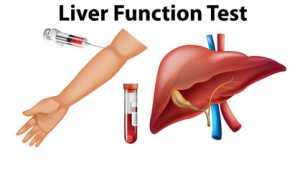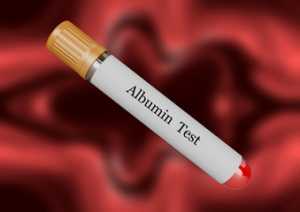Everything About Liver Function Tests- Significance, Procedure, and Results Interpretation.
Liver functions test(LFT) are a set of tests for checking the amount of proteins, enzymes and bilirubin present in the blood. These tests help diagnose liver infection, liver disease or damage. Elevated or lower levels of one or more of these substances can be a sign of a liver problem. The substances tested are:
Gamma Glutamyltransferase or GGT: An enzyme found in the bloodstream.
Alkaline phosphatase or ALP: An enzyme present in bone and liver.
Aspartate Transaminase or AST: An enzyme present in liver and muscles.
Alanine transaminase or ALT: An enzyme present in the liver.
Lactate dehydrogenase: Another enzyme made by the liver, found in nearly all cells of our body.
Albumin and total protein: Albumin is a protein vital for the body to fight off infections and to perform several bodily functions. A total protein test checks the total amount of albumin and different proteins found in the blood.
Bilirubin: It is a substance formed as a result of the breakdown of erythrocytes(red blood cells).
Prothrombin Time(PT): The Prothrombin time test measures the time taken for the blood to clot.

Why Are Liver Function Tests Done?
Liver function tests help in the diagnosis and treatment of:
- Diagnose liver infections, such as hepatitis.
- Monitor the side effects of certain medications that affect the liver
- Check the severity of a disease such as cirrhosis
- Check whether the treatment of liver disease is working or not
Why Do I Need Liver Function Tests?
You may need to take liver function tests, if you’re experiencing liver disease symptoms, such as:
- Jaundice
- Fatigue
- Nausea and vomiting
- Dark coloured urine and light coloured stool
- Abdominal pain
- Diarrhoea
- Itching
- Abdominal swelling
- Loss of appetite
If you have certain risk factors, you may also need to take liver function tests. You can be at increased risk for liver disease if you:
- Assume that you’re exposed to hepatitis virus
- Have a chronic condition called alcohol use disorder( a condition in which a person is addicted to alcohol)
- Take certain medications that may affect the liver and cause liver damage
- Have a family medical history of any liver condition.
What to Expect During Liver Function Test?
Blood sample required for the test is typically drawn from a vein in your arm. You may experience bruising or soreness at the puncture site. A healthcare professional will draw a small amount of blood by inserting a small needle into a vein in your arm. Your blood will be collected in a small tube, which is attached to the needle. You may experience a little sting and discomfort when the needle is inserted and taken out, which is short-term. A bandage will be placed over the site of blood draw. For analysis, your blood sample collected will be sent to the laboratory. The blood draw lasts only for a few minutes.

What Do the Results Mean?
These are the normal ranges of proteins and enzymes for adult men. The ranges can be slightly different for women and children.
|
Protein/Enzyme |
Normal Range |
GGT |
8 to 61 U/L(Units per liter) |
Alkaline phosphatase |
40 to 129 U/L |
Aspartate Transaminase |
8 to 48 U/L |
Alanine transaminase |
7 to 55 U/L |
Lactate dehydrogenase |
122 to 222 U/L |
Albumin |
3.5 to 5.0 g/dL(grams per deciliter) |
Total protein |
6.3 to 7.9 g/dL |
Bilirubin |
0.1 to 1.2 mg/dL(milligrams per deciliter) |
Prothrombin Time |
9.4 to 12.5 seconds |
ALT Test Results: ALT is released into your bloodstream when your liver is not functioning correctly or is damaged. As a result, the level of ALT will increase. A higher than normal ALT may indicate liver damage. For males, if the ALT level is more than 33 IU/L, and in females, if the ALT is above 25 IU/L, then do further testing and evaluation to identify the disease.
AST Test Results: The enzyme is released into your blood when your liver is damaged. Elevated AST level can be a sign of a problem either with your liver or muscles.
ALP Test Results: High ALP levels can be a sign of bone disease, blockage of bile ducts or liver inflammation. Children and adolescents have high levels of this enzyme since their bones are growing. Also, the level of this enzyme gradually increases during pregnancy.
Albumin Test Results: If your Albumin test results come back to be lower than normal, then it can be a sign that your liver isn’t functioning properly. Kidney disease, poor nutrition, kidney inflammation and infection can cause the albumin level to drop.

Bilirubin test results: Normally, the liver processes this enzyme. If the liver is not functioning proper, then the liver fails to process this enzyme properly, which results in elevated bilirubin levels in the blood. If your LFT test results show a high level of bilirubin, then it means that your liver isn’t functioning properly.
Lactate dehydrogenase(LD) test results: Elevated LD can be a sign of liver damage, but many other disorders also cause this enzyme to be elevated.
Prothrombin Time: Increased prothrombin time can be a sign of liver damage, coagulation factor deficiencies and in Vitamin K deficiency, but it can also be elevated, if a person is taking blood-thinning medications.
The test results alone won’t help your doctor in the diagnosis of the condition, but it helps determine the next steps. If your test results point to a problem with the functioning of your liver, then your doctor may review your past medical history and the medications that you take to discover the cause.
He/she may test you for liver infections or disease that may affect your liver. Your doctor may order imaging tests like CT scan or ultrasound. The doctor may also suggest a liver biopsy to evaluate the liver for a fatty liver condition, fibrosis or other conditions that affect the liver.
Frequently Asked Questions
What does elevated Gamma Glutamyltransferase mean?
Elevated Gamma Glutamyl Transferase levels can be a sign of bile duct or liver damage. Higher than normal GGT levels are also common in those who take medications that metabolises in the liver and also in those who consume alcohol.
Can I have abnormal Liver function test results and not have liver disease?
Yes. One or more than one liver function test results will be abnormal if you have temporary conditions such as muscle trauma, burns, shock, severe infections, haemolysis, pregnancy, dehydration or pancreatitis.
Why is family medical history important?
Sometimes, certain liver conditions such as Wilson’s disease( a condition that causes accumulation of copper in organs) and haemochromatosis( a condition that causes a buildup of iron in the body) can be inherited. Timely diagnosis of these conditions, helps in timely treatment of health conditions.
What are other tests done in follow up to abnormal LFT?
Based on the liver function test results and other factors like family history, signs and symptoms, your doctor may suspect the cause of liver disease and then order for follow up tests. If your doctor assumes that you have a viral infection, then he/she may order a hepatitis A, B or C test. If it’s hepatitis, you’ll be asked to take an ethanol test, and If it’s Wilson’s disease, then you’ll be asked to take Ceruloplasmin test.
What are the preparations required before a liver function test?
Certain food and medications may affect your liver function test results. And hence, your doctor may ask you not to take certain food and medications prior to the blood draw.